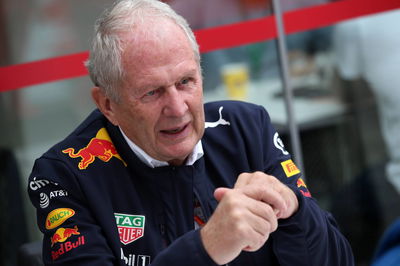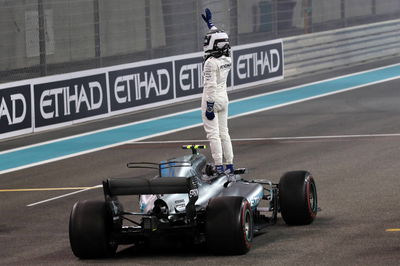Unreliability cost Red Bull second place to Ferrari – Marko
Red Bull motorsport advisor Dr Helmut Marko has blamed its unreliable engines for losing out to Ferrari in 2017 but concedes his team would’ve struggled to taken on Mercedes even without its power unit problems.
Marko says he’s certain Red Bull could have backed up its 2016 runner-up place in the Formula 1 World Constructors’ championship this season but a combined 13 DNFs between Daniel Ricciardo and Max Verstappen – although not all down to engine issues – meant it missed out to Ferrari.

Red Bull motorsport advisor Dr Helmut Marko has blamed its unreliable engines for losing out to Ferrari in 2017 but concedes his team would’ve struggled to taken on Mercedes even without its power unit problems.
Marko says he’s certain Red Bull could have backed up its 2016 runner-up place in the Formula 1 World Constructors’ championship this season but a combined 13 DNFs between Daniel Ricciardo and Max Verstappen – although not all down to engine issues – meant it missed out to Ferrari.
Red Bull lost out to Ferrari in the teams’ standings by 154 points at the end of 2017, and finished 300 points behind Mercedes, but Marko feels his team’s retirement numbers is a more damning statistic.
“On the circumstances – or let’s say luck – we had more than ten DNF’s,” Marko told Formula1.com. “Picture this! This outstanding record speaks for itself. Without that we would have been significantly further up in both championships. P2 would very likely have been ours.”
Marko has also conceded Red Bull failings with its chassis and set-up during the opening four flyaway races from Australia to Russian also cost the team badly as it recorded just one rostrum in that run – Verstappen’s third place in the wet in China. After fixing the chassis problems from Spain onwards it triggered an upturn in form which saw Ricciardo record five consecutive rostrums including victory in Azerbaijan before grid drop penalties for engine changes began to hurt both Ricciardo and Verstappen.
“The start of the season was not good. We had correlation problems that had forced us to start the season with a non-competitive chassis,” he said. “We were able to change that at the start of the European season in Barcelona and from Budapest onwards I would say that we had a competitive chassis. I would even go so far as to say that sometimes we had an outstanding chassis.
“Engine-wise it was no secret that we had a lot of reliability problems which hindered the engine manufacturer in further power developments.”











